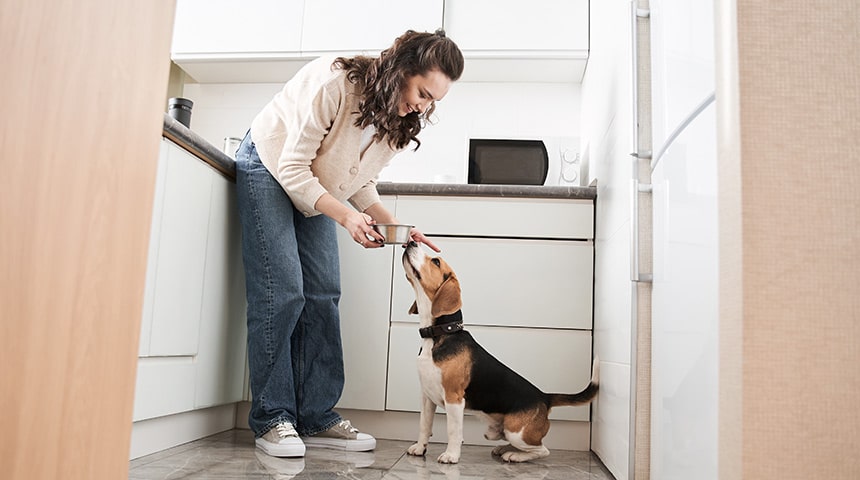
Choosing the right food for your dog is a real challenge! How to properly feed your pet for him to stay healthy? This is the question that many pet owners ask regularly. Animal diets are no longer used solely to feed animals, but also to prevent health problems related to poor nutrition - and they must be adapted to the physical condition of each animal. Their needs are very different from ours and vary according to their size, age, and lifestyle. Between certain renowned industrial diets especially created by veterinary doctors specializing in nutrition and home-made food, there is certainly a varied menu to be found for our pets. Yet, despite seeming the healthiest option, home food carry the risk of lacking some vitamins and minerals that are inevitably found in kibble; therefore, your animal runs the risk of developing nutritional deficiencies. Don’t hesitate to ask our team for advice in order to see things more clearly, and especially to choose a proper diet adapted to YOUR animal.
First, it is not up to the dog to decide what to eat or not, but to you. However, without yielding to his whims, you can notice his preferences! Keep in mind that a dog is an omnivore, like humans, and they must eat both anima-based and vegetable-based foods. Their preferences vary between beef, chicken, lamb and pork. They also love animal fats and sugars. Chunky foods are often more appreciated by dogs. Kibble is often preferred by dogs. Your pet can have a healthy and balanced diet by eating dry or wet food. However, the first recommendation for a healthy animal will be to prioritize dry food such as kibble. The reason is very simple: the kibble’s mechanical effect on the teeth helps your companion to maintain proper dental health. Alternatively, moist food will not slow the accumulation of tartar on the teeth. This does not remove the benefits of quality canned dog food. As they get older, dogs may sometimes need a special diet. Thus, canned food becomes the nutritional recommendation for them at this stage. However, some pets won’t want to eat canned food simply because it is new to them. Because of this, it might be good idea to incorporate this type of food into your pet’s current diet as a treat from time to time. For example, you could give moist canned food once a week. That way, your dog will get used to it while benefiting from the kibble’s good mechanical effect throughout the week. After all, we all have the right to enjoy treats once in a while!
Homemade food
It consists of cooking a mixture of vegetables, starch (carbohydrates) and cooked meat. The dogs usually love this type of food. However, it may not contain enough vitamins and minerals for your pooch. If you have time and would like to prepare home-made meals for your dog, talk to your veterinarian. There is a range of recipes tailored to your pet’s needs. These recipes include vitamin and mineral supplements to be added to meals in order to obtain a healthy and balanced diet.
Kibble
Industrial dog kibble is the most reliable and complete of foods. Easy to transport, inexpensive compared to its quality, kibble represents a complete and nutritious food for dogs. Often developed by veterinarians, they are highly balanced in nutrients needed for the health of your pet. Moreover, they are perfectly adapted according to the age, size and weight of your dog. The diet will have to be adapted throughout the life of your dog according to their health. Moreover, kibble offers the benefit of keeping very well, unlike moist foods that can degrade faster.
What should you avoid?
Be careful not to give just any kind of food to your dog! Bones are to be avoided as they can get stuck in their digestive system, causing serious health problems such as intestinal obstruction or intestinal perforation. Never give your dog chocolate, because it is toxic to them. It can cause vomiting and also acts as a powerful cardiac stimulant and can cause convulsions. Caffeine, like chocolate, should be banned as it is a cardiac stimulant that can cause death in dogs. In dairy products, as cheese or any other type of lactose-based food should be avoided, as they may cause vomiting or diarrhea.
To ensure proper growth and continued health for your dog, follow these few simple rules to ensure that your dog gets the best balanced diet according to their life stage.

